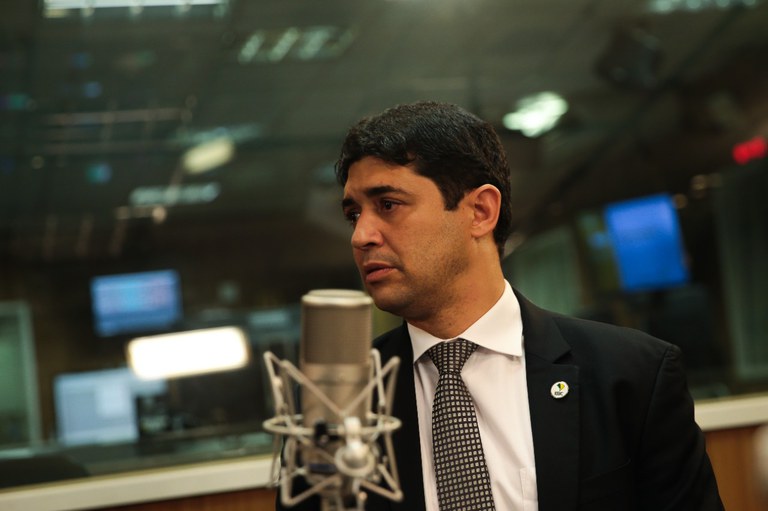INTERVIEW
Federal Government works to combat corruption through the CGU
The minister of the CGU, Wagner Rosário, speaks about the work of the Comptroller General of the Union on the implementation and strengthening of measures to combat corruption. - Photo: Agência Brasil
The Federal Government elaborated the Anti-Corruption Plan with the objective of structuring and executing actions to improve the mechanisms of prevention, detection and accountability for acts of corruption, within the scope of the Federal Executive Branch. The measure, which began in 2020, aims at advancing in the fulfillment and improvement of anti-corruption legislation and in meeting international recommendations.
The Anti-Corruption Plan has a schedule of application until 2025 and, after a year of validity, has already reached 60 actions delivered, which corresponds to almost 40% of the plan already fulfilled, according to the Federal Comptroller General (CGU).
The minister of the CGU, Wagner Rosário, speaks about the work of the Comptroller General of the Union, together with the public and private sector, in the implementation and strengthening of measures to combat corruption.
Compliance and process integrity, governance and anti-corruption: how does the CGU address these three areas at the federal level?
As for our performance in these three areas, in terms of compliance in the processes, the Government is currently organized into three lines of defense: the first line, which is management itself; the second line is more in those governance mechanisms of each ministry, of each autarchy, such as the area of legal advice, such as the area that deals with governance within each ministry; and the third line of defense which is the CGU. So today, in terms of compliance, we make the first and second lines of defense of each agency, of each unit, to act by checking. For example, when a purchase process goes through the legal department, the legal department checks this compliance with the legal aspects. We, today, only audit this when we have a very specific problem, we usually audit if these lines are working within the process compliance, this is our idea.
In the area of public governance, governance is defined as strategic leadership mechanisms, whose objective is to direct, evaluate and monitor public policies. I direct, I manage to evaluate the policy and, from the moment I evaluated it, I see if it is on the right path, I direct and keep monitoring. CGU assesses public policies through this audit. This evaluation gives feedback to the manager, saying: look, I'm delivering the expected result, or I'm not delivering the result. And from there I have to take measures to ensure that this is fulfilled. So we work in governance very much in terms of control.
And the last point is the fight against corruption, then the CGU has a huge role, because we work to fight and prevent corruption, and when we say that, we get into the aspects of transparency, into the aspects of integrity, into the aspect of sanction of individuals and companies involved in corruption, development, training of employees, about these concepts, then all these areas, and we act in a very emphatic way. And then I also include the ombudsman area, which is an area that allows citizens to interact with the Federal Government through our channels, mainly Fala.Br, and we can report, complain, and from of these reports, we act on investigation and a number of things. So, within these three themes, we act.
Regarding the sanction of companies and individuals, starting with individuals, the CGU has a rigorous investigation work with regard to federal employees who may have committed irregularities and, if these irregularities are proven, these employees end up being dismissed from the public service. How is this process?
One of the areas of the CGU is the General Office of the Union, which takes care of these processes, but we have conventional units in each ministry, not all dismissals occur at the CGU, they occur within a system coordinated by the CGU. We already have today more than 8,500 employees laid off since 2003, 445 this year alone and in the last three years around 1,500 employees, so an average of 500 employees per year that are sanctioned with the penalty of dismissal from the public service.
But this after a rigorous investigation process.
Exactly. Usually these processes arise through detections by the heads of the servers themselves, or through complaints, which is also a very common channel, or even through audits and reworks.
.

 Mr. Alessandro Jacob speaking about Brazilian Law on "International Bar Association" conference
Mr. Alessandro Jacob speaking about Brazilian Law on "International Bar Association" conference